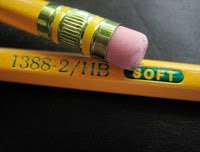Blasting Media Comparison Chart
Abrasive Blasting Media Chart
Abrasive blasting media come in varied shapes and sizes. Some are sharp, some are round, some are soft, and some are tough. Each type of blasting media leaves a different effect on the surface. Some stick around for quite many uses, while others wear out quickly. The results, cost, and effort all change depending on the media you choose.This chart shows the quirks of common blasting media. From particle size to hardness, you can see how each option behaves. Check the chart to see the finish, how long it lasts, and what it costs. Understand your blasting media, for if you pick the right one, the surface will shine
Media |
Aluminum Oxide | Crushed Glass Grit | Glass Beads | Silicon Carbide | Plastic Abrasives | Copper Slag / Iron Silicate |
|---|---|---|---|---|---|---|
Description |
Sharp, long lasting media for fast etching & profiling; Brown/black or White | Silica-free, 100% recycled glass; Efficient, economical stripping | Round, soda-lime glass to produce a bright, satin finish; Minimizes stress on part | Very hard, aggressive cutting media; Ideal for stone, glass and hard surfaces | Abrasive, soft media designed for automotive & aerospace applications | Aggressive, consumable media for fast etching & profiling |
Surface Profile |
High etch | Medium-high etch | No etch, satin finish | Very high etch | No etch, stripping | Medium-High etch |
Working Speed |
Fast | Fast | Medium- fast |
Very fast | Medium | Fast |
Recyclability |
High | None; consumable | High | High | High | Low |
Surface Removal |
Yes | Slight | Slight | Yes | Slight | Yes |
Hardness, Moh |
8 – 9 | 5 – 6 | 5 – 6 | 9 – 9.5 | 3 – 4 | 7.5 |
Bulk Density |
110 lbs/ft³ | 100 lbs/ft³ | 95 lbs/ft³ | 90 lbs/ft³ | 50 lbs/ft³ | 150 lbs/ft³ |
Media |
Pumice | Steel Shot | Steel Grit | Corn Cob | Walnut Shells | Nu-Soft Steel Shot |
|---|---|---|---|---|---|---|
Description |
Natural volcanic ash; light-weight, mild abrasiveness | Carbon steel, round spheres designed for polishing and peening applications | Angular, carbon steel for fast stripping & aggressive cleaning | Organic, soft media ideal for soft surfaces such as wood | Angular, organic grit for mildly aggressive stripping w/out damage to surface | Cast steel, spherical. Low hardness. Highly durable for sensitive and soft metal parts. |
Surface Profile |
Low etch | No etch | High etch | None | Low etch | No etch |
Working Speed |
Medium- slow |
Medium | Medium- fast |
Slow | Medium- slow |
Fast |
Recyclability |
Low | Very high | Very high | Low | Low | Very High |
Surface Removal |
No | No | Moderate | No | Very slight | No |
Hardness, Moh |
6-7 | 40-51 HRC | 40-65 HRC | 4-4.5 | 4.5-5 | 3–3.5 |
Bulk Density |
35-40 lbs/ft³ | 230 lbs/ft³ | 260 lbs/ft³ | 40 lbs/ft³ | 50 lbs/ft³ | 250 lbs/ft³ |
Frequently Asked Questions (FAQs)
Q1. What is abrasive blasting media?
Abrasive blasting media are the agents responsible for the controlled process ongoing inside a blast cabinet. This abrasive blasting media cleanses and sculpts surfaces by sheer momentum, guided by air or water pressure. Glass beads, aluminum oxide, crushed shells, and other abrasives are used nowadays. Each media type reacts in a different way on metal, wood, or stone. With the right media, precision and power align beautifully.
Q2. What is the best media for sandblasting?
The best abrasive blasting media depends on the job. Steel shots are best for tough stripping tasks, glass beads for quite smooth finishes, and garnet for eco-conscious blasting. The choice is made based on material sensitivity, the desired finish, and dust tolerance. The best media for sandblasting is the one that obeys the task at hand.
Q3. What are the different types of abrasive blasting media?
An entire range of textures and temperaments is available. You’ll find abrasive blasting media ranging from aggressive grit like silicon carbide to gentle polishers like plastic beads. Other common types include walnut shells, soda, staurolite, and copper slag. Each brings a different force, hard-hitting or subtle, coarse or smooth. Your project dictates the choice of abrasive.
Q4. How do I choose the right abrasive media?
For choosing an abrasive blasting media, you have to know in depth about the surface hardness, contamination level, finish levels, and how eco-friendly the process is. If it is a hard metal, aluminum oxide would be a good choice. If it is a wooden antique, try walnut shells. Assess wisely before you blast to get the right results.
Q5. Can I use abrasive blasting for rust removal?
Absolutely. When chosen correctly, abrasive blasting media can eradicate rust without damaging the surface beneath. Steel grit and aluminum oxide are favored for this mission. Abrasive blasting for rust removal is an incredibly efficient process that eliminates with precision and speed but also ensures a thoroughly cleaned surface, making the entire experience as satisfying as it is effective.
Q6. Is sandblasting media safe to use?
In responsible hands, it is very safe to use. Safety with abrasive blasting media demands masks, gloves, and proper ventilation. Some media, like silica sand, can pose respiratory risks, so always follow protocols. Safe use is about control of air, of particles, and of common sense.



